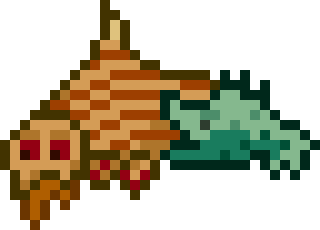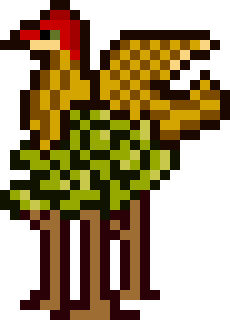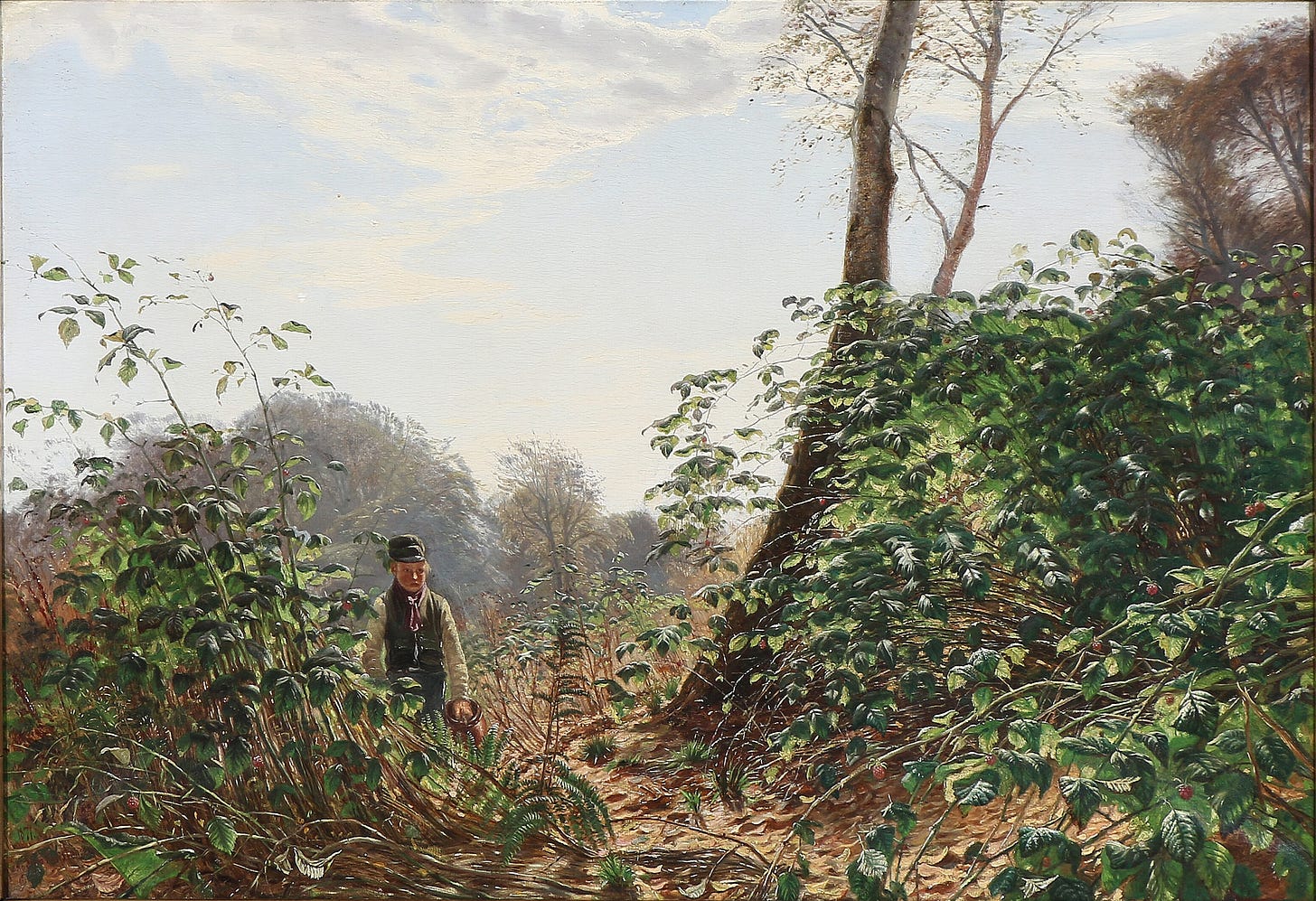This post begins with the fairly trivial topic of summer berries, but it’s going to make a deep point about life, I promise.
It is mid-July, which is the peak of berry season where I live. The rest of the year, we can get blueberries, raspberries, strawberries, or blackberries that have grown in the faraway lands of Mexico, Peru, or California. They’re sometimes good, but more often, due to the constraints of long-distance transportation, rather subpar. I thank global industrial civilization that I can get those in November or January if I need to, but there is still something special when summer starts and the actually tasty local berries become in season. It is a renewed pleasure every year.
Part of why it’s a renewed pleasure every year is that I sort of forget about it. I don’t truly forget about it in the sense that the knowledge of what a fresh local raspberry is has disappeared from my brain. But it doesn’t sit at the forefront of my awareness. When summer comes again, suddenly I go, “oh, nice, it’s blueberry season again!” and “we should go strawberry picking!” and “I haven’t eaten a bowl of berries with cream and maple syrup since last year, and I just remembered it’s my favorite dessert!” All things that I wasn’t actively thinking about, and am delighted to be reminded of.
(Not to mention the rarer berries that I actually forget about until they briefly become available again, like haskaps1 and gooseberries and blue raspberries2.)
Of course, it’s not just berries. Anything seasonal is a delight when it comes again. The yearly cycle is just long enough for things to leave conscious awareness and then make a mildly surprising and pleasant comeback. Maple products in March; fiddlehead ferns in May; peaches and corn on a cob at the end of summer, and pomegranates and persimmons from foreign lands at the beginning of winter.
If I wanted I could ignore all of that, and eat the same foods throughout the year. Or I could yearn for them when I can’t have them (or buy their inferior out-of-season versions). Both these options are worse than what I do, which is to love more fruits and vegetables than I am able to keep track of them.
One of the most cited papers in the field of psychology comes from 1956, a time when scientific papers had cooler titles than they do now. It’s called “The Magical Number Seven, Plus or Minus Two.” It refers to the idea that human short-term memory can typically hold 7 elements at any given time (± 2).
I don’t know whether it is true, and whether 7±2 truly is the magic number, but it seems true enough: whenever I try to remember more than about that number of elements on a grocery store list, for instance, I usually forget a few things. A written list is necessary.
The example on berries and other seasonal foods isn’t quite short-term memory. It’s not really long-term memory either. I don’t know what to call it, but whatever it is, it’s plausible that it has the same sort of cognitive limit as that 7±2: at any given time, you can easily recall a number of things in a category, and everything else, though known to your long-term memory, takes special effort to remember. Unless it is presented to you by your environment, such as the changing seasons.
For a totally different example, consider music. Over the course of my life I have listened, intentionally and attentively, to a lot of music. But I can also go long periods without really picking specific music, usually just putting on the local public radio station. When I decide I feel like listening to something I choose (because there’s nothing good on the radio), I often draw a blank: I have no idea what to pick. I feel like I have forgotten all the music I know, except perhaps a few artists that have recently been in my conscious awareness. With some effort (or the chance of the radio selection), I may re-discover an artist I used to listen to but haven’t thought about in years. It feels about as good as discovering new music.
I could carefully keep track of the music I have loved; to some extent I do, in a bunch of Spotify playlists. But I kind of like the chancy, random process of forgetting and re-discovering constantly. It takes less effort, and it causes unexpected delight.3
What else is like this? Friends.
Here the cognitive limit has a clear name, and a defined quantity: the so-called “Dunbar’s number” states that there’s an upper bound to the number of relationships we can maintain. The number is popularly considered to be 150.
Again, let’s not worry too much about the specific figure, and realize that whatever it is, most people have more friends than they can properly keep track of. (At least, provided they’re not too stingy with who they decide to call their friends.) Every once in a while I try to think of who all my friends are, and every time, I realize that I can’t hold many of them close to my conscious awareness. Beyond the few really close ones, and the few I have talked with recently, it’s clear that I’m forgetting many. It doesn’t mean they’re not real friends: a good friendship can live for years in the background, to be rekindled only when the time comes. And when the time does come, I’ll be delighted: to run into an old friend again after a long time feels about as good as making a new friend altogether.
For close friends, family, and lovers, this does not apply, of course: those people, and there should be only a few, are expected to sit at the forefront of your awareness pretty much all the time. That’s why they’re “close” in the first place. Yet there’s still a sense in which you can love them more than you can keep track of.
People are complex. They are an enormous bundle of personality traits, preferences, past stories, and relationships. You can never keep track of everything even of a romantic partner. You always forget little bits of them.
And that’s good! It means you will constantly re-discover them — and be delighted. You should, of course, remember the important stuff. But that’s not hard, if you love someone, and there really is no benefit to trying to keep track of everything that’s less important. If you love the person enough, and they love you, the constant process of forgetting and re-discovering will only be a boon. It will stave off boredom forever.
In fact, I suspect that an important function of relationships is to facilitate this process. By having another person close to you, you have another mental model of yourself than your own. They will remember stuff that you have not been thinking about, and delight you with it. They’ll tell you an anecdote you had forgotten about. They’ll see a box of blue raspberries at the market, and remember that you liked that last year, and surprise you with a box of them. And you’ll do the same to them, constantly.
Love, when done well, is a lifetime of small surprises; because it is, or at least should be, greater than whatever can fit in our small brains.
My favorite fact about haskaps, other than they taste amazing, is that it’s a rare loanword from Ainu, the now quasi extinct language of the indigenous population of Hokkaido in the north of Japan.
Yes, they’re real! Although they’re more dark purple than blue. They do actually taste somewhat like the “blue raspberry” bright blue artificial flavor, though whether they served as inspiration for it is rather unclear.
The one downside is that I never know what my “favorite” anything is. Unless I have previously expended some effort deciding that and making it a core part of my identity, it’s an unanswerable question: I can’t search through the space of all music/fruit/books/cities/etc. I know about quickly enough to reply in a normal conversation. I can only recall the few that are in my current awareness, and I usually know all too well that it’s unlikely one of those is my actual favorite.









I think happiness is what happens when we love the present. However, the conditions of the present are always changing, which makes that a bit difficult.
What you're describing is a way of rediscovering love for the present again and again in new moments and places by relocating familiar things you love. I think this must he a fairly sustainable strategy for being happy.
beautiful essay 💜